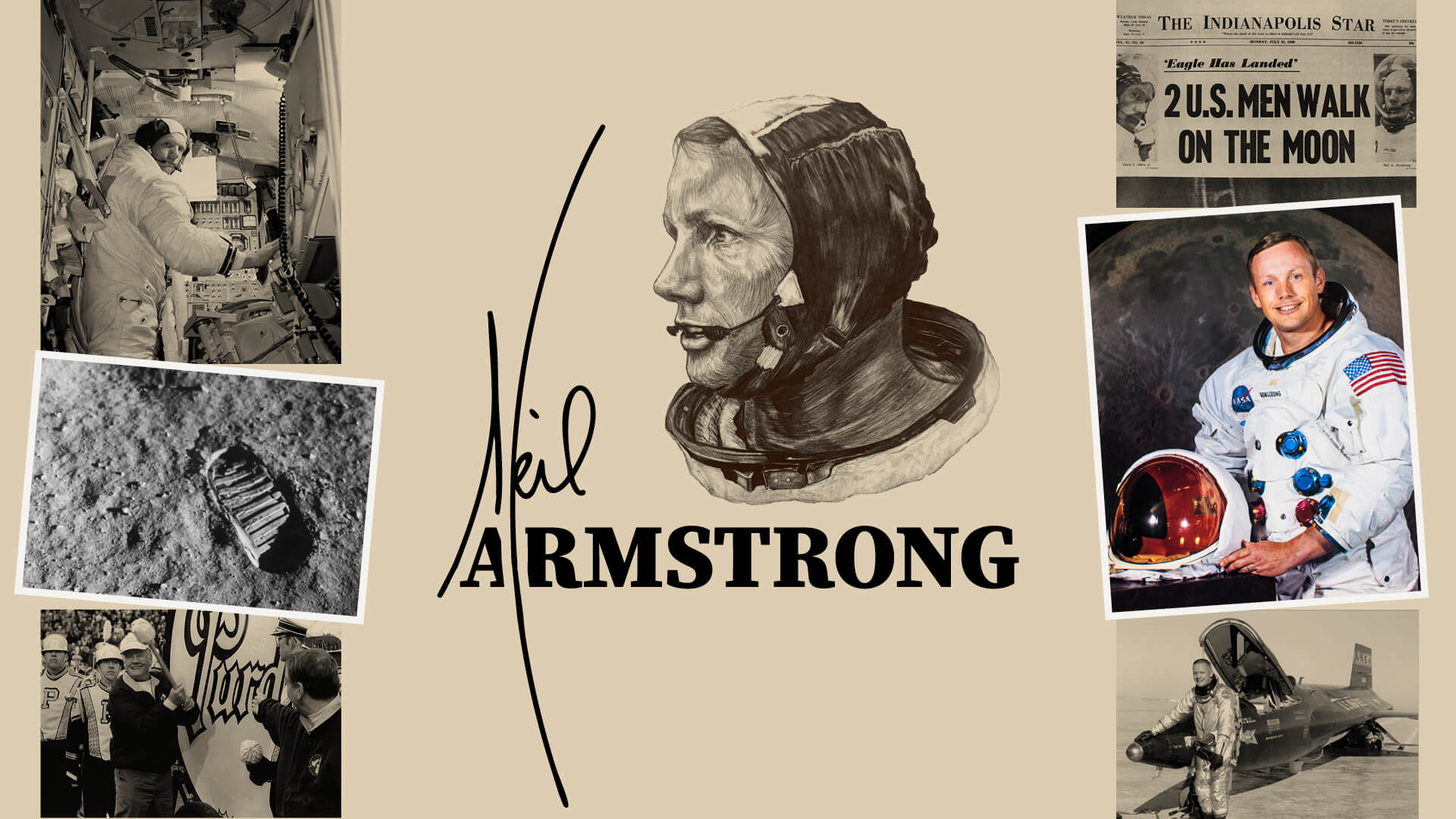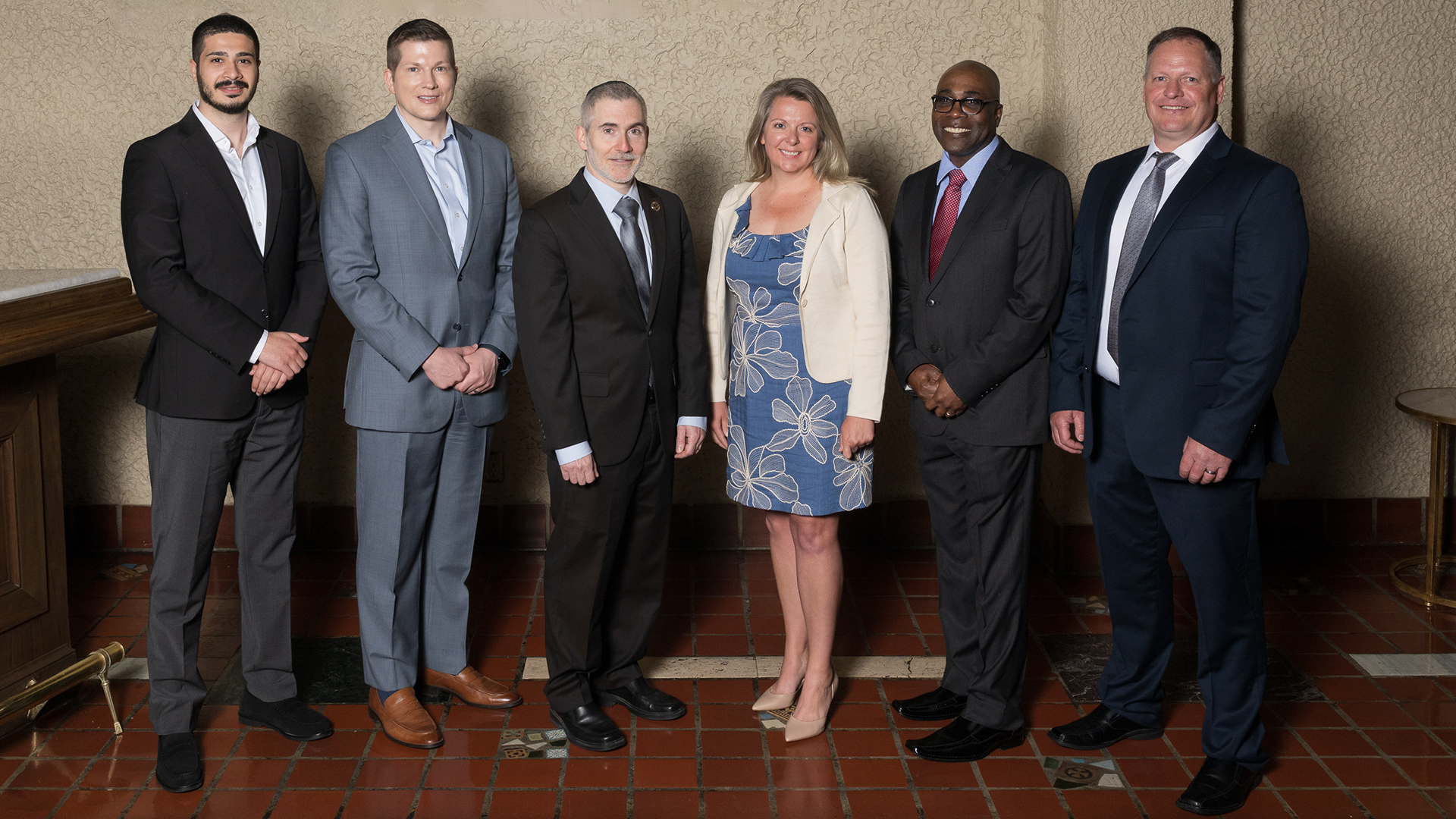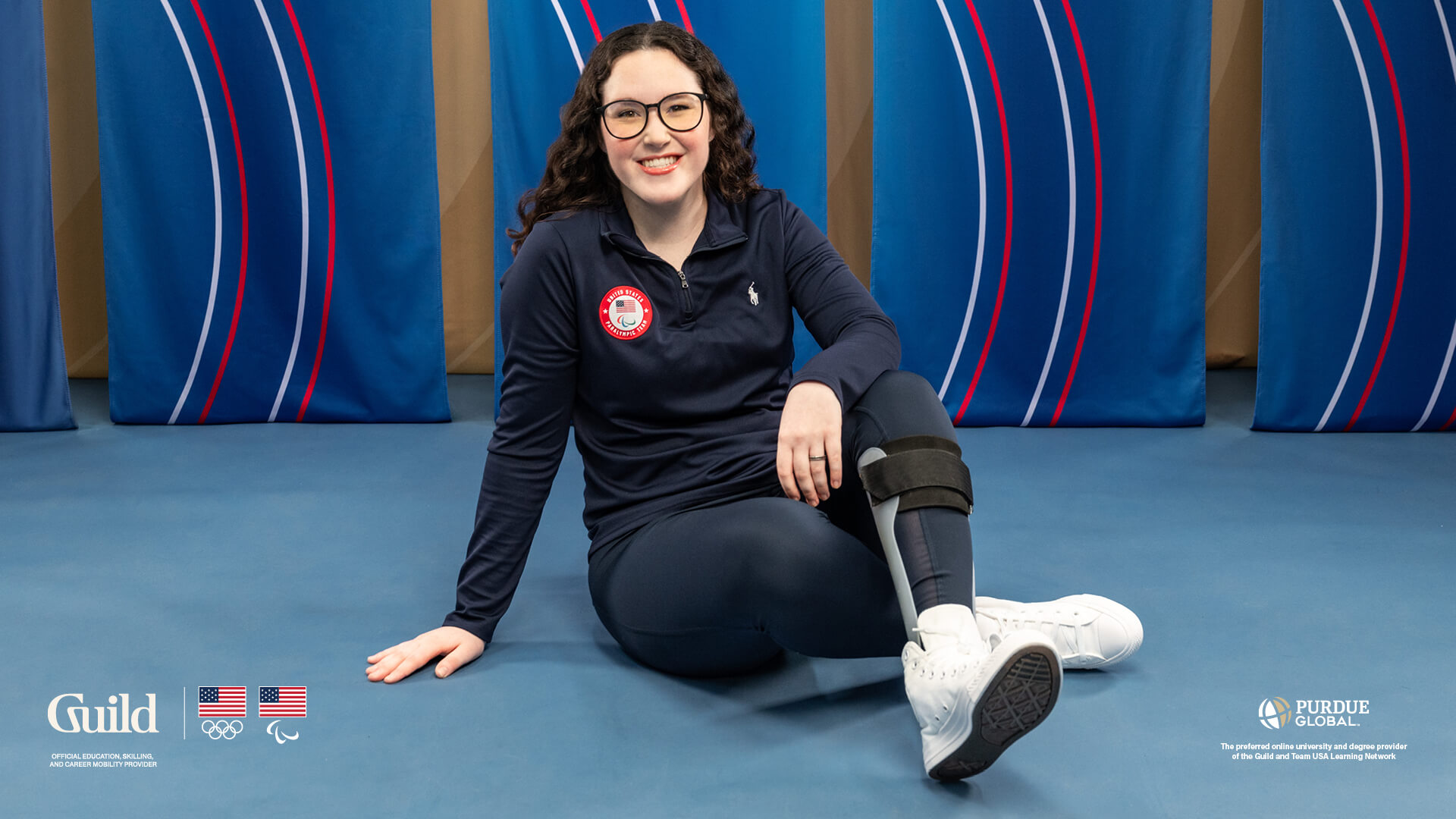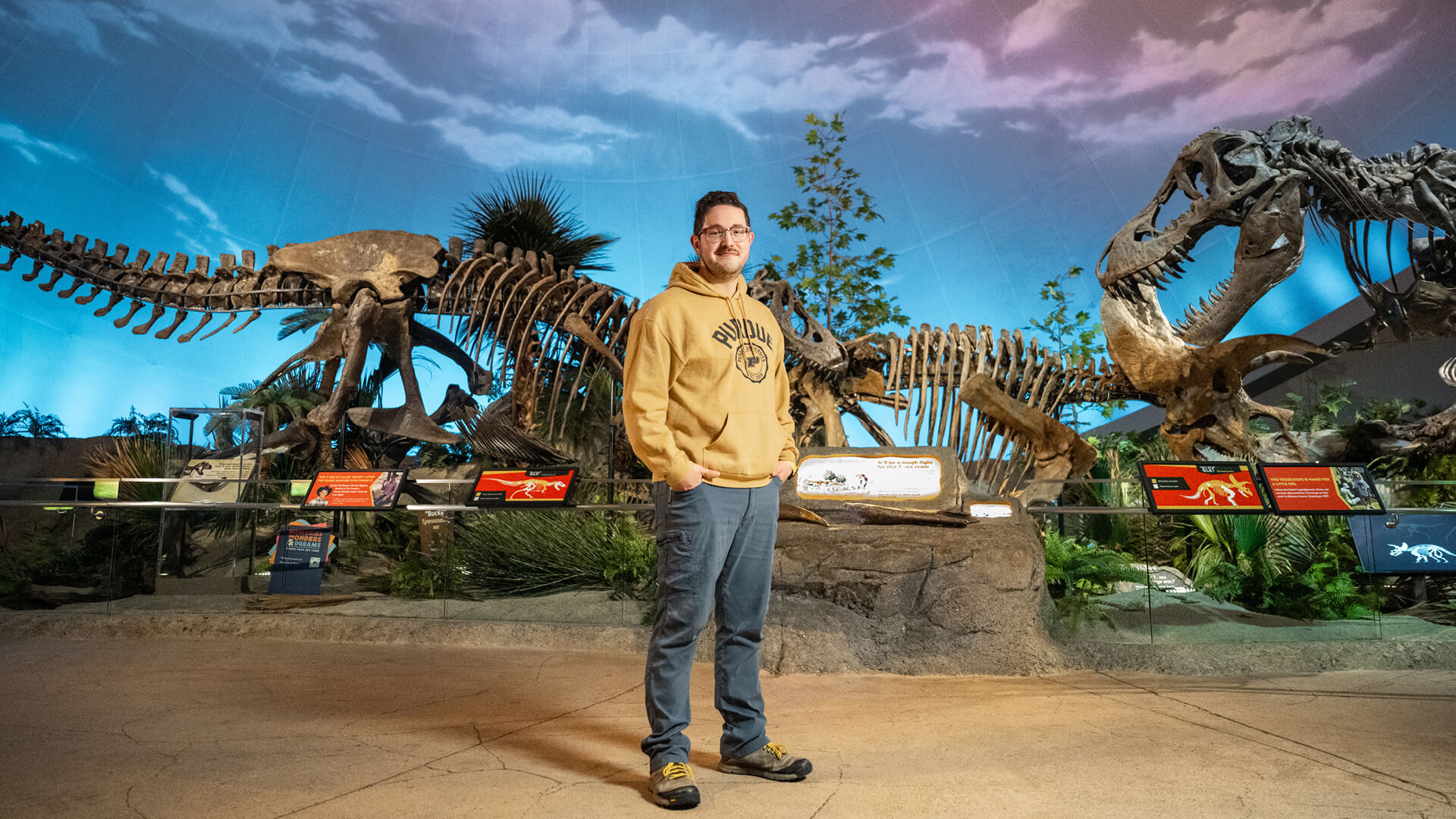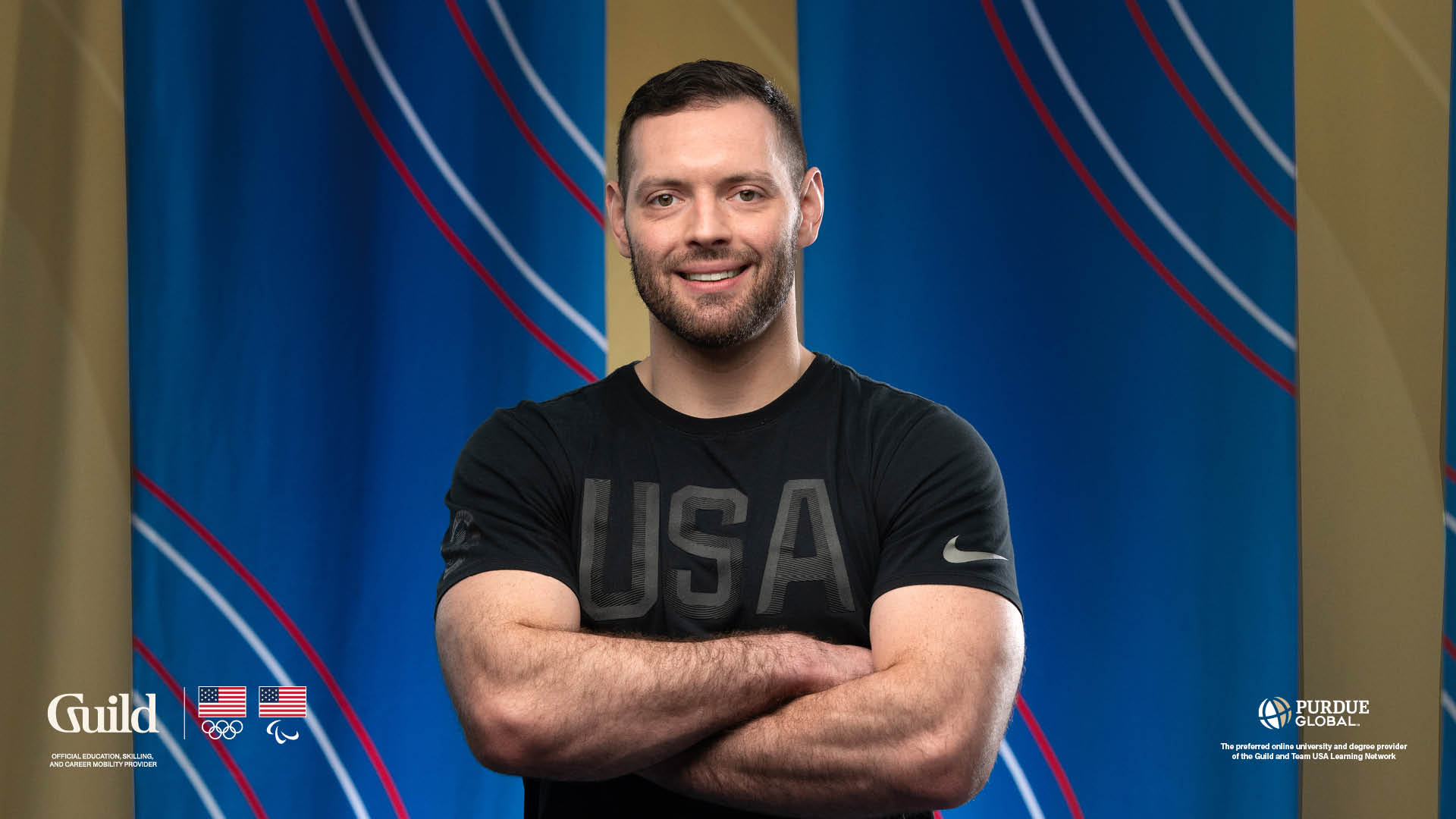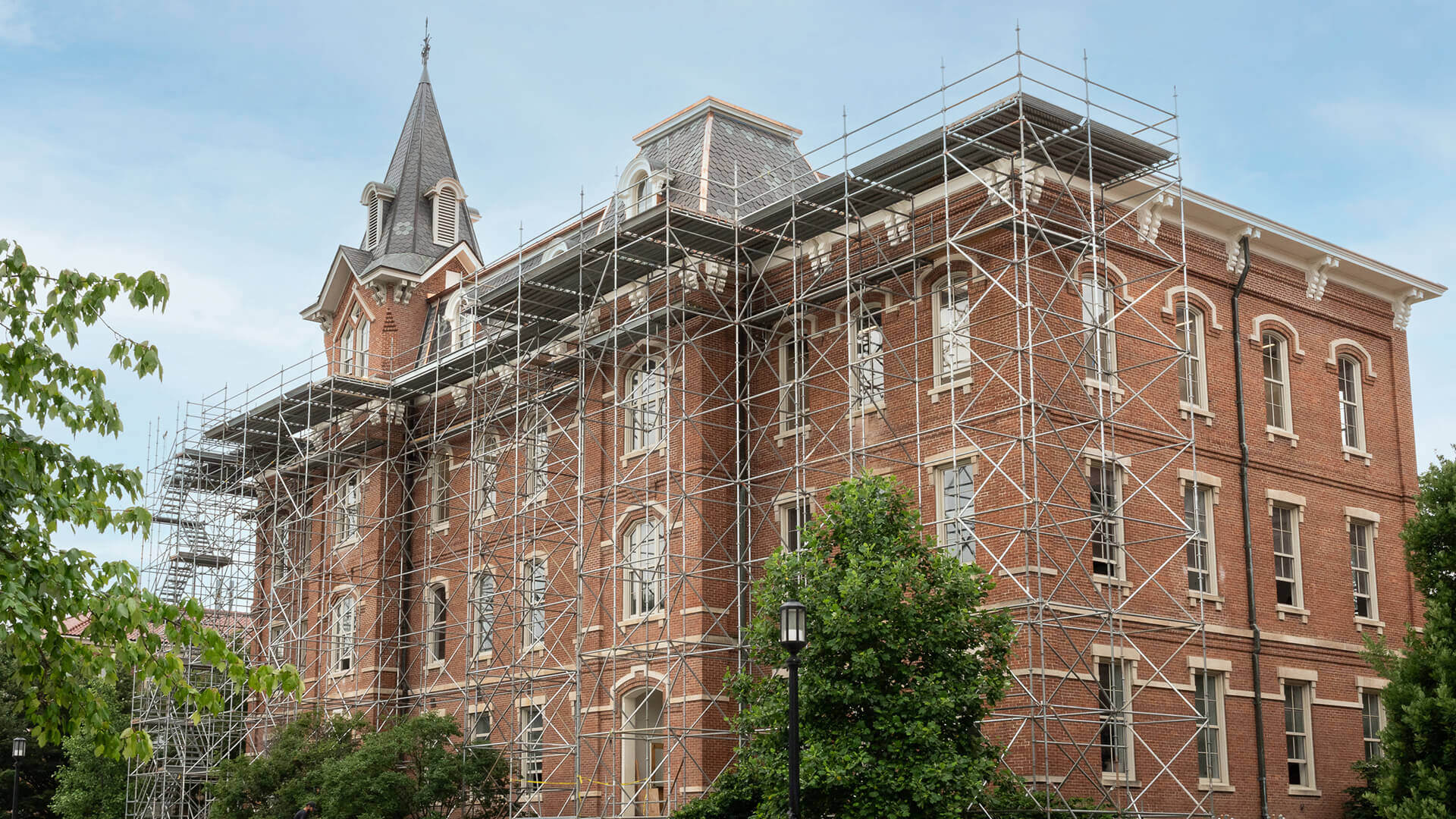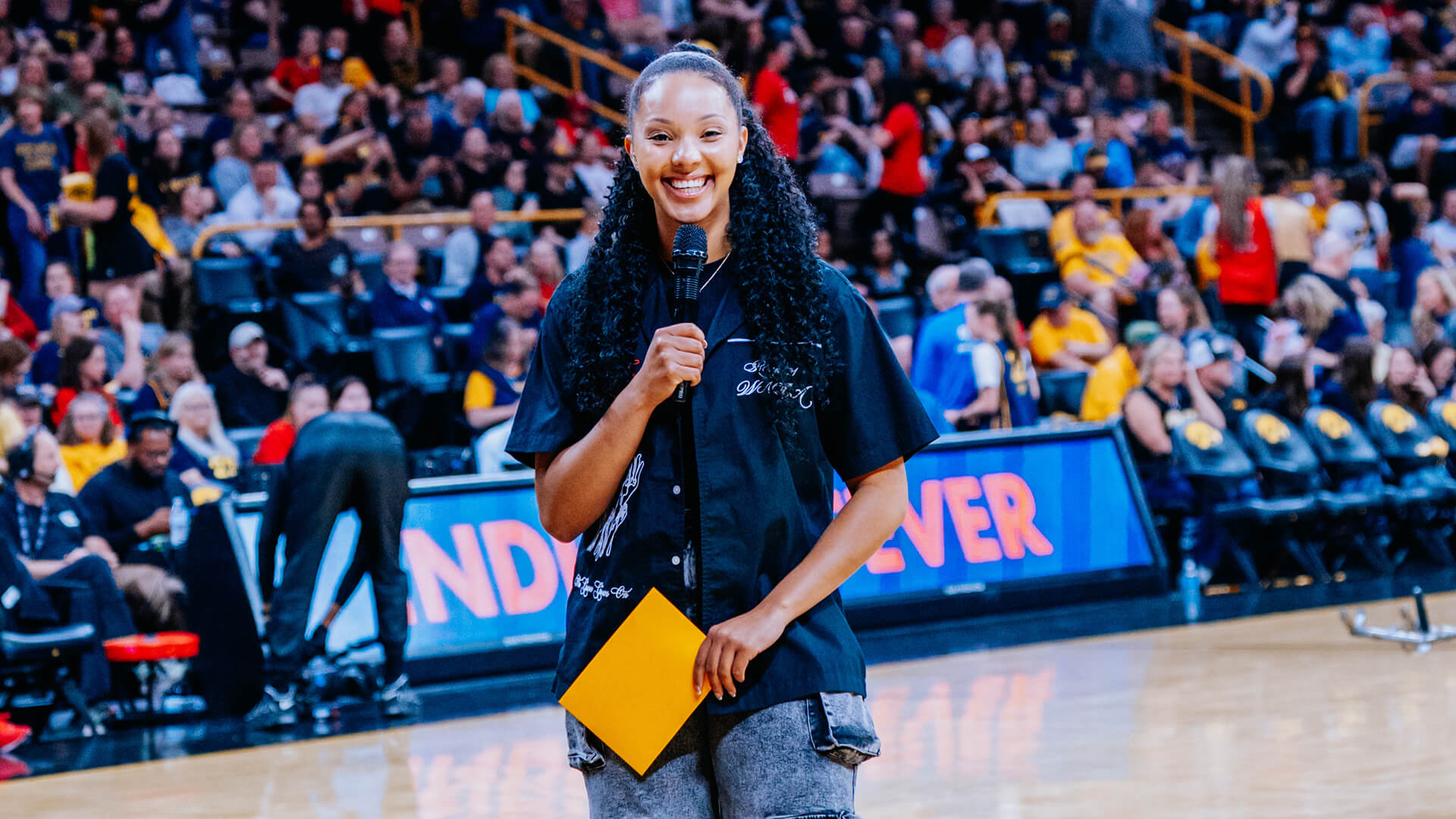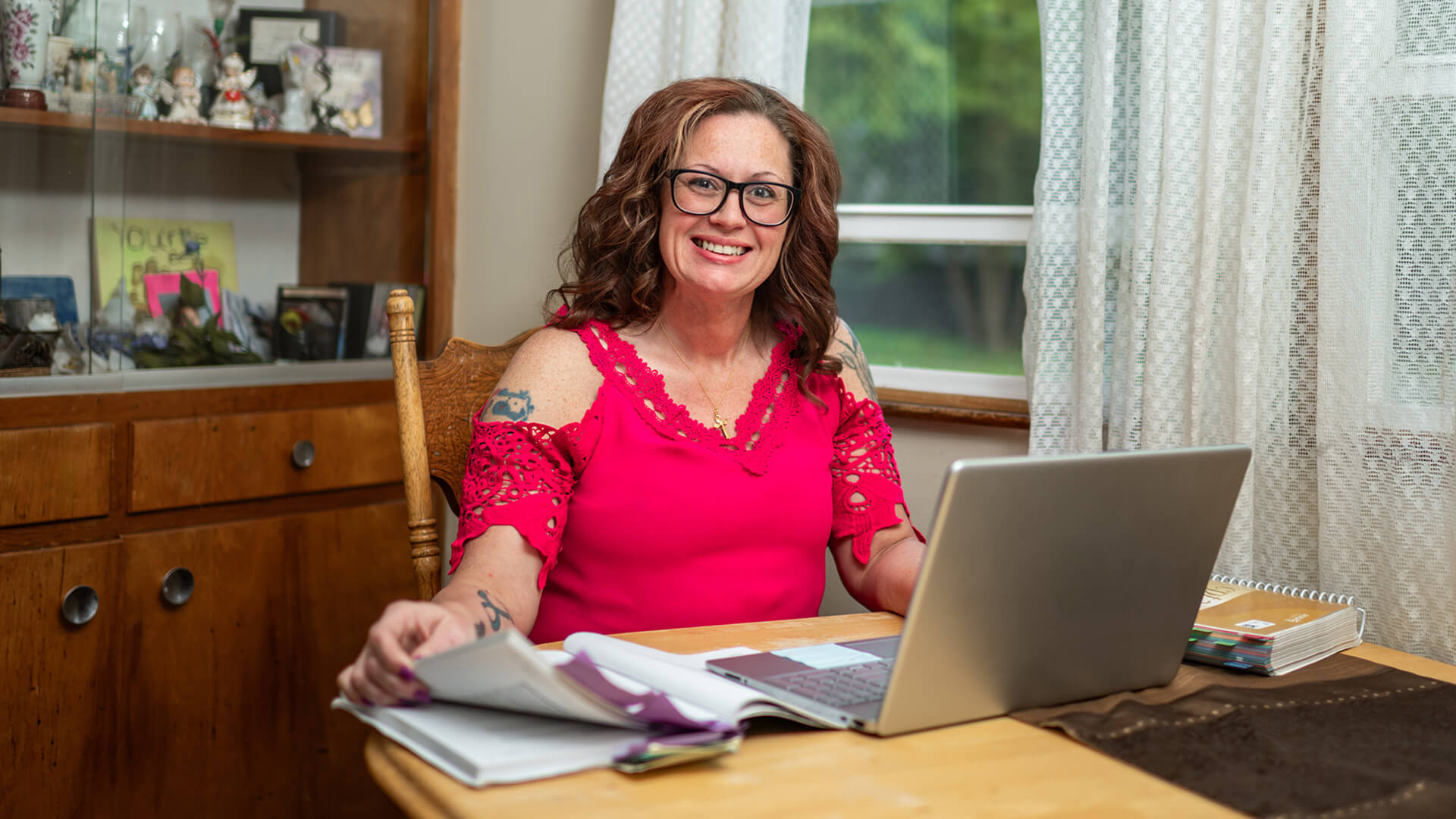Building tools to shape the future of health science
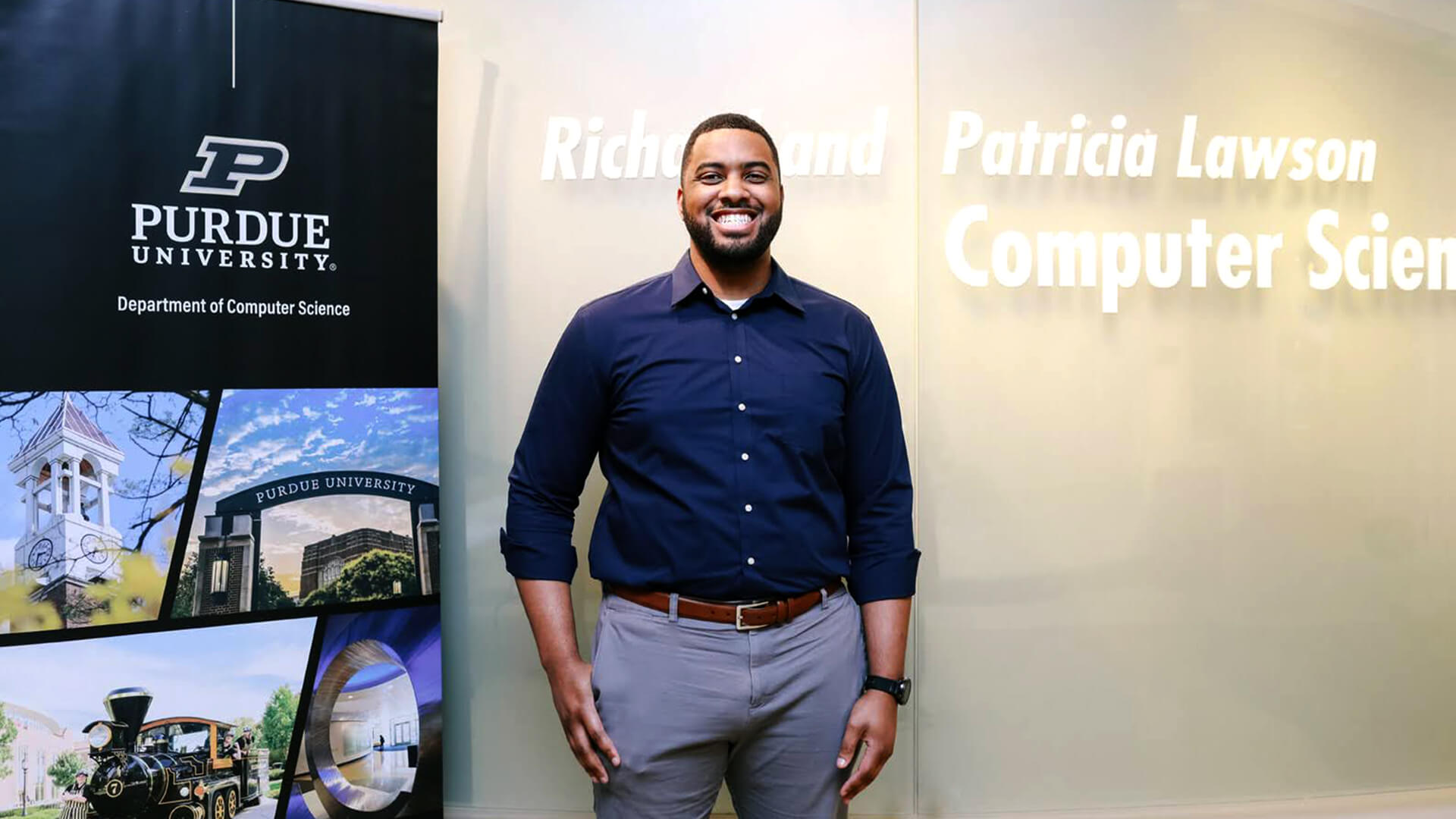
Dr. Myson Burch and his IBM colleagues build tools that use artificial intelligence and quantum technologies to advance the quality of health care. (Photo courtesy of the Purdue Department of Computer Science)
Myson Burch, an IBM research scientist, uses skills he sharpened at Purdue to address complex health issues
As he reflects upon his journey in computer science, Dr. Myson Burch can pinpoint the experience that transformed the discipline from something he enjoyed to a purpose-filled passion.
That opportunity, where Burch (PhD computer science ’23) discovered how his computer and mathematics skills could improve health outcomes, inspired him to pursue graduate study at Purdue. And it eventually guided him toward a career at IBM research, where his team’s innovative work in artificial intelligence and quantum technologies will advance the quality of health care on a massive scale.
All Burch needed was a spark, and it ignited as an undergraduate student at Indiana University-Purdue University Indianapolis (IUPUI) when he assisted professor Julia Arciero on an applied mathematics project that addressed patients’ vascular conditions. Arciero’s computational modeling project, conducted in partnership with Indiana University Health, provided an exciting first glimpse of how Burch’s expertise could affect positive change.
“At the time I was like, ‘OK, computer science is cool. There are a lot of different applications,’ but I never really had my hands on anything or saw the fruits of impacting something or someone,” Burch says. “Once I was a part of that project with her, it really opened my eyes to seeing that this can really impact somebody and make a change, and it was something that I really wanted to do.
“It led me to pursue my PhD at Purdue and drove me to work on how computer science impacts health and how technology can improve our outlook on human health and disease,” Burch says.
The ripple effects from that initial inspiration will likely resonate for generations to come.
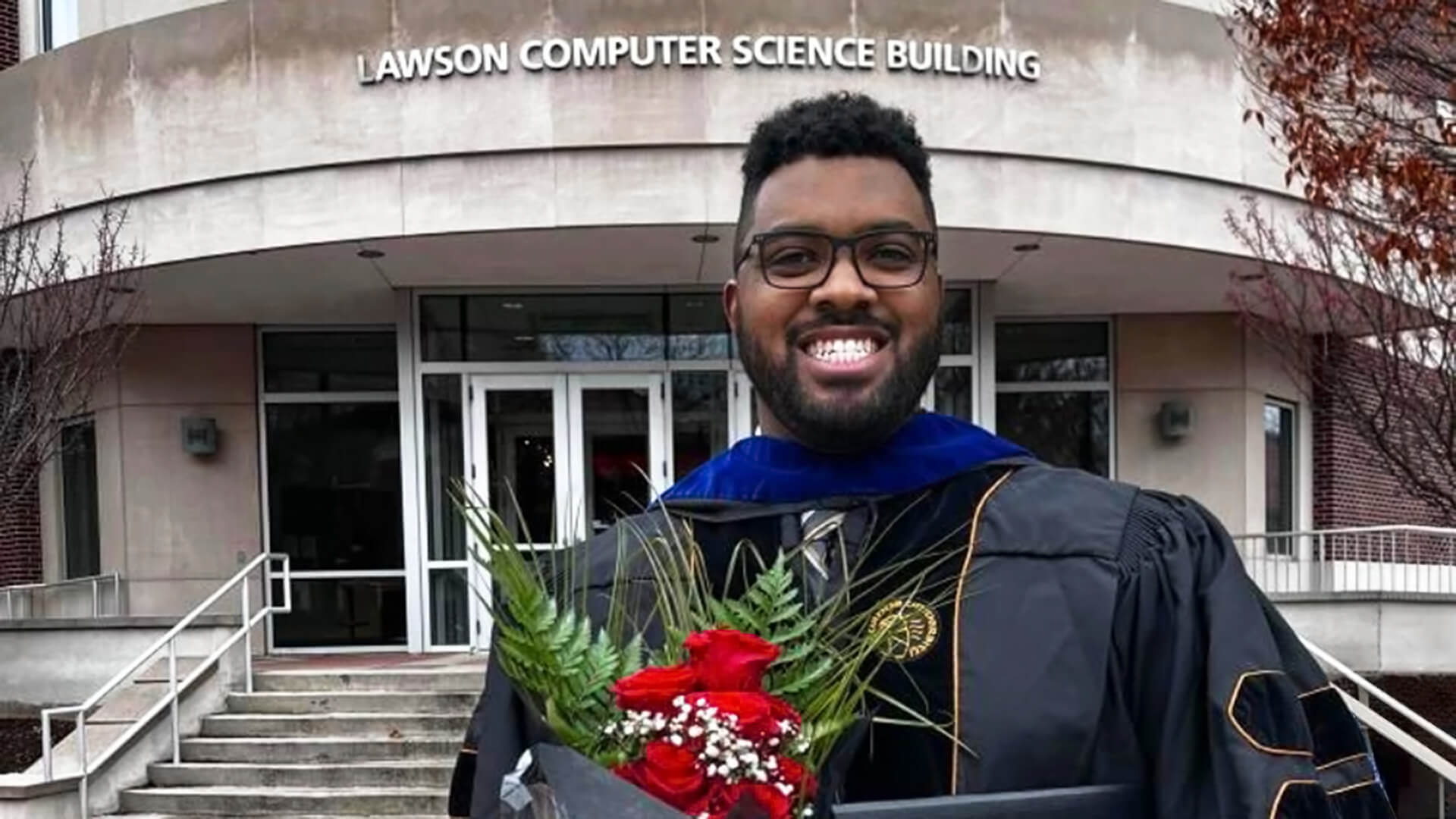
Influencing the future of health care
Today, Burch works as a research scientist at IBM, helping the company build tools that will accelerate scientific discovery in health and life sciences — including prediction of complex diseases and disorders, as well as drug discovery.
Burch’s role at IBM builds upon his work at Purdue, where he created a technique to use the volumes of available health information to more accurately identify genetic markers that make individuals more susceptible to conditions like Parkinson’s disease, schizophrenia and cardiovascular disease.
Only now, he’s looking for other applications where he can apply the research tools he built at Purdue under mentor Petros Drineas, professor and associate head of computer science.
“At IBM, they’ve really challenged me and pushed me to broaden that aspect of health and life sciences, saying, ‘You know, genomics isn’t the only aspect where you can apply your skill set and your toolkit,’” says Burch, who served as a National Science Foundation Graduate Research Fellow while conducting genomics research at Purdue. “And so I’m really looking at other things with drug discovery, with predictive models and with generative models for building small molecules and foundation models and different things like that. I’m stretching my domain knowledge, but still using the same skill set built at Purdue.”
In the short term, Burch is excited about seeing IBM partners like Cleveland Clinic deploy the AI applications his company builds to immediately improve patients’ lives. But he also sees significant long-term promise in his team’s work.
“IBM, in particular, has had a huge push in trying to be cutting-edge with quantum and explore how far we can push those limits with that type of technology and that type of science,” he says. “That puts us at an interesting moment because I think we’re pioneering this new technology and we’re pioneering these new applications that are really just at their inception in terms of applying or theorizing.”
The pioneering aspect of his team’s work is one that Burch finds especially meaningful. He acknowledges that AI’s rapid emergence has created widespread concern over technology’s future role in our daily lives. That’s why he says it’s important for innovators to responsibly consider the potential of the tools they create before turning them loose upon the public.
“One of the reasons why I got into research the way I did was because I wanted to be front and center of something that was going to create a change and going to create an impact in my community and really do something that’s important,” Burch says. “When you’re in research and working on some of these tools, you definitely feel that. You feel that significance and you feel that importance and you feel different ways that you can contribute to these different things.
“I definitely appreciate being able to work at IBM and not be a bystander to some of these changes and really be a part of affecting the change and being a part of that development.”
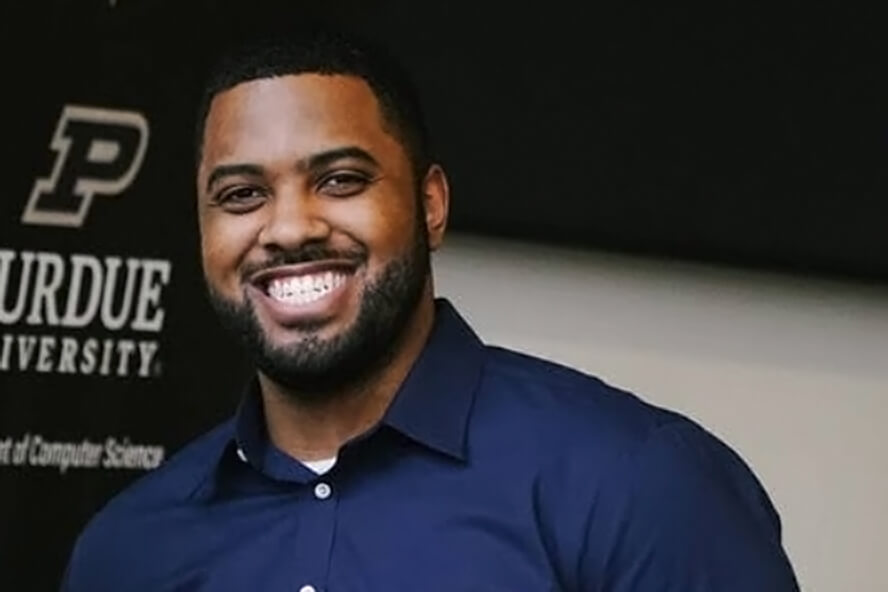
One of the reasons why I got into research the way I did was because I wanted to be front and center of something that was going to create a change.
Myson Burch PhD computer science ’23
Building community
Burch’s aversion to being a bystander revealed itself in numerous ways during his time at Purdue — and not just when creating tools that can change health care as we know it today.
He was one of just three Black PhD students in computer science when he enrolled at Purdue in 2017, and two of them completed their graduate studies shortly after his arrival. However, Burch says one of those students, Dr. Amber Johnson, made an enormous impression during the short time that they overlapped in West Lafayette.
Johnson — the first Black woman to earn a PhD in computer science at Purdue — taught Burch that if a community he desires to be part of does not exist somewhere, he can always work to create that community himself.
“It’s difficult to succeed in a space that you don’t see yourself in or you don’t see faculty of color. You just really don’t see those pathways exist for you because you don’t see yourself in the space,” Burch says. “She really imparted on me to find success in that, embracing the challenge of being the first. If you don’t see yourself there or you don’t have a previous example to lean on, then be a trailblazer.
“I really looked up to her quite a lot in terms of all the things that she’s been able to achieve and all the things that she accomplished while she was at Purdue and beyond,” he adds. “I kind of homed in on that and tried to view it less as an obstacle and more as something that I wanted to achieve personally.”
If you don’t see yourself there or you don’t have a previous example to lean on, then be a trailblazer.
Myson Burch
PhD computer science ’23
And so he got to work. He worked with another mentor, Lillian Evans, the Department of Computer Science’s former diversity specialist, to expand outreach to underrepresented minority students. He joined Purdue’s Black Graduate Student Association, serving as vice president and undergraduate outreach chair. And he served on the Purdue Equity Task Force, whose goal is to remove barriers to success of Boilermaker students, faculty and staff of color.
“I’m proud of the work that (the Black Graduate Student Association) did, and I’m really glad that I was able to get involved in a community like that because I think you have to develop that kind of community and that sort of support system for other minorities to really gravitate toward the program. You have to develop those cohorts,” Burch says.
Burch also worked outside the university to help other students potentially follow in his footsteps. He served as a mentor under Dr. Temi Adeoye with the Heads Up Tutoring and Life Skills Program, which helps Greater Lafayette youth living in government-assisted housing complexes pursue their academic, professional and personal goals.
“I loved being part of that space, and Temi allowed me to come in as a mentor and encourage building life skills,” Burch says. “In that type of work, you want to be a good role model and a good example for others to lean on and follow. Hopefully they’ll do even better and achieve things that I wasn’t able to achieve in my time at Purdue and go above and beyond.”
As Burch’s journey in computer science proves, you never know what might happen when a bright young person sees an opportunity to make a difference.
